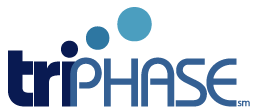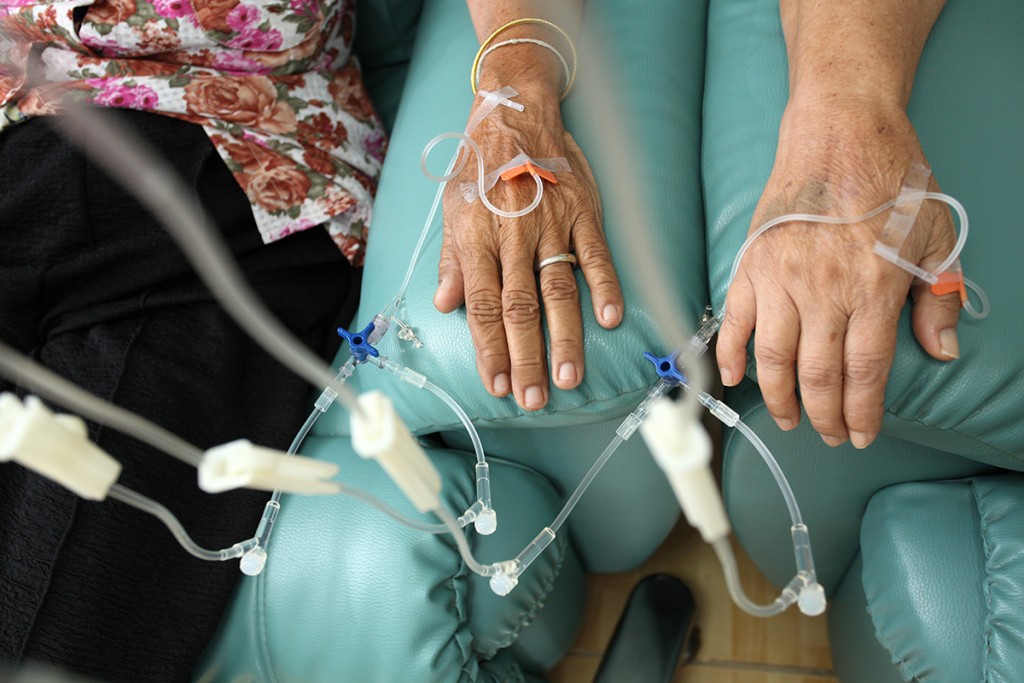 TORONTO and SAN DIEGO (September 25, 2015) — Triphase Accelerator Corporation, a private drug development company dedicated to advancing novel compounds through Phase 2 proof-of-concept, today announced that it has received approval from Health Canada to initiate its Phase 1 clinical study of marizomib in combination with bevacizumab (Avastin®) in patients with recurrent malignant glioma in Canada. Marizomib is a novel and highly potent proteasome inhibitor that readily penetrates the blood brain barrier. It prevents the breakdown of proteins involved in signal transduction, which inhibits tumor growth.
TORONTO and SAN DIEGO (September 25, 2015) — Triphase Accelerator Corporation, a private drug development company dedicated to advancing novel compounds through Phase 2 proof-of-concept, today announced that it has received approval from Health Canada to initiate its Phase 1 clinical study of marizomib in combination with bevacizumab (Avastin®) in patients with recurrent malignant glioma in Canada. Marizomib is a novel and highly potent proteasome inhibitor that readily penetrates the blood brain barrier. It prevents the breakdown of proteins involved in signal transduction, which inhibits tumor growth.
The study will be conducted in Canada at the Princess Margaret Hospital in Toronto and led by principal investigator Warren Mason, M.D., medical director of the Brain Tumour Centre and Kirchmann Family Chair in Neuro-oncology Research at Princess Margaret Hospital.
“Malignant gliomas are rarely curable, and the prognosis for patients with high-grade gliomas is generally poor. One of the few treatment options currently available for recurrent gliomas is bevacizumab. As a result, new treatment options are urgently needed for patients suffering from this universally fatal disease,” said Dr. Mason. “Published literature indicates that targeting the proteasome in glioma cells has shown significant anti-tumor activity. Given that marizomib is a first-in-class pan-proteasome inhibitor that is brain penetrant, I am looking forward to evaluating this combination regimen in my patients.”
The multicenter, open-label, dose-escalation study is designed to determine the maximum tolerated dose of marizomib and bevacizumab in bevacizumab-naïve patients with WHO Grade IV malignant glioma who are in their first or second relapse. The second stage of the study will evaluate the safety and activity of the recommended dose for future Phase 2 studies. The study is currently underway in the United States at The Preston Robert Tisch Brain Tumor Center at Duke University Medical Center and at the Comprehensive Brain Tumor Program at the University of California, Irvine Medical Center.
“We look forward to working closely with Dr. Mason and his staff at Princess Margaret Hospital on this important study of marizomib in glioma,” said Mohit Trikha, Ph.D., chief scientific officer and head of R&D at Triphase Accelerator.
About Marizomib
Marizomib is a novel and highly potent proteasome inhibitor that irreversibly binds and inhibits all three proteasome subunits, which translates into longer duration of effect and potentially improved clinical activity. Triphase Accelerator is developing marizomib in both intravenous and oral formulations as a potential best-in-class proteasome inhibitor for hematologic malignancies and solid tumors. Marizomib has demonstrated activity in a study in patients with multiple myeloma who have received both lenalidomide and bortezomib. The IV formulation has been evaluated in more than 270 patients in six Phase 1 studies in patients with solid and hematologic malignancies, either as a single agent or in combination with dexamethasone, a histone deacetylase inhibitor, or an immunomodulatory drug.
In addition to the Phase I proof-of-concept clinical study in combination with bevacizumab (Avastin®) in patients with glioblastoma being conducted in the United States and Canada, Triphase Accelerator is currently evaluating marizomib in a Phase 1 study in combination with pomalidomide and dexamethasone in relapsed and refractory multiple myeloma. Triphase Accelerator is also evaluating an oral formulation in IND-enabling studies. The company has received orphan drug designation for marizomib in multiple myeloma in the United States and the European Union.
About Triphase Accelerator
Triphase Accelerator is a private drug development company with a primary focus on oncology and with operations in Toronto and San Diego. Triphase Accelerator is dedicated to advancing novel compounds through Phase 2 proof-of-concept clinical studies using a unique, science-based, high-quality model that is faster and more cost-effective than traditional pharmaceutical and biotech industry drug development approaches. Triphase Accelerator was spun out of the Ontario Institute for Cancer Research (OICR), with support from MaRS Innovation and MaRS Discovery District, and has a strategic relationship with Celgene for oncology-focused drug development opportunities.

